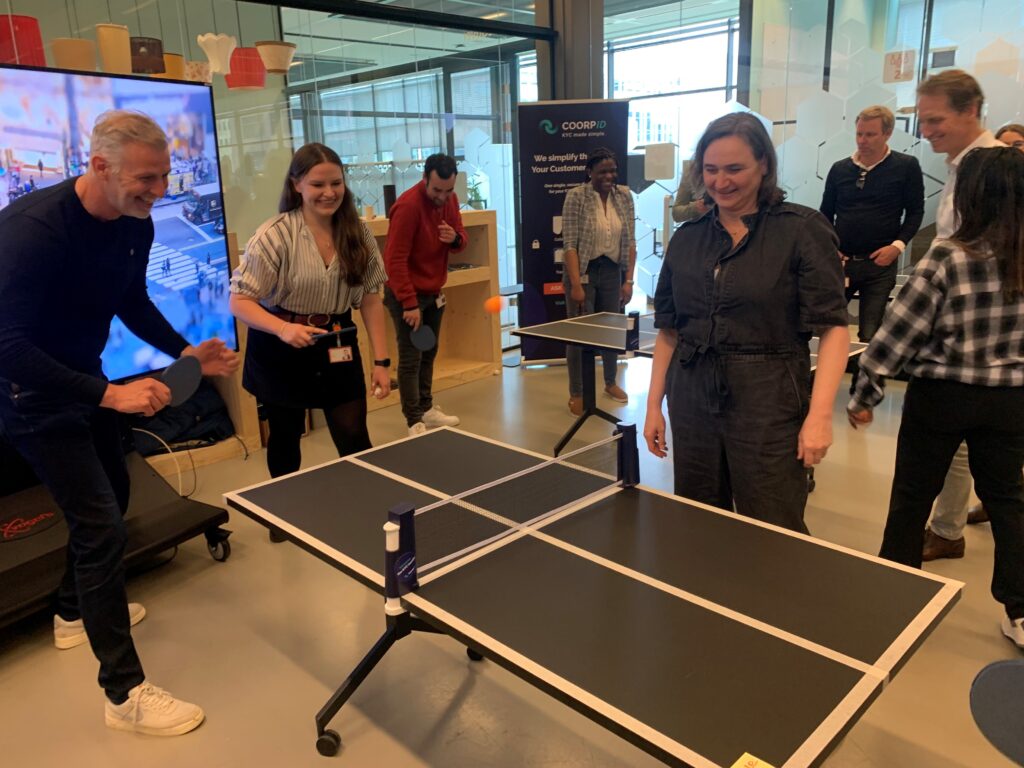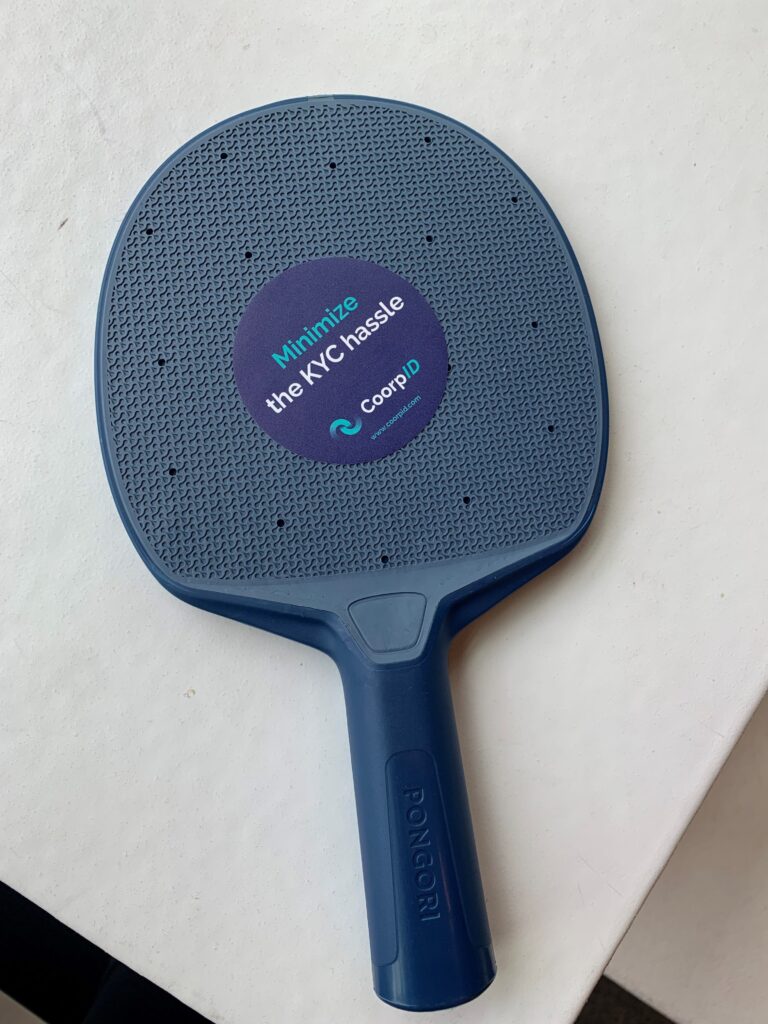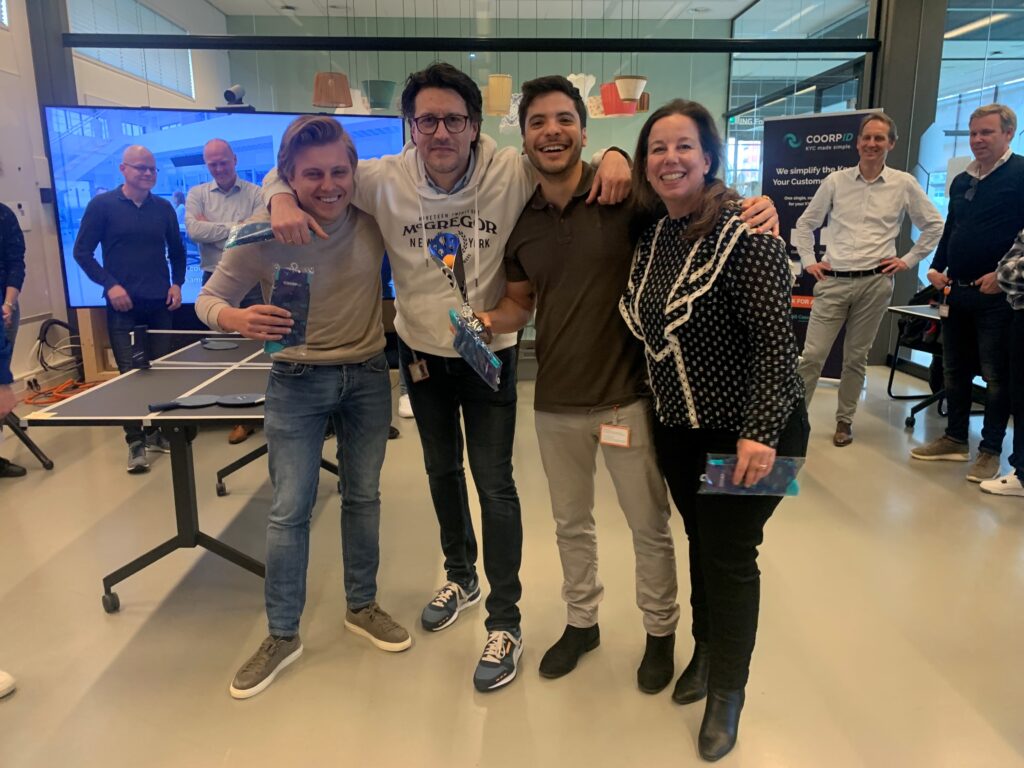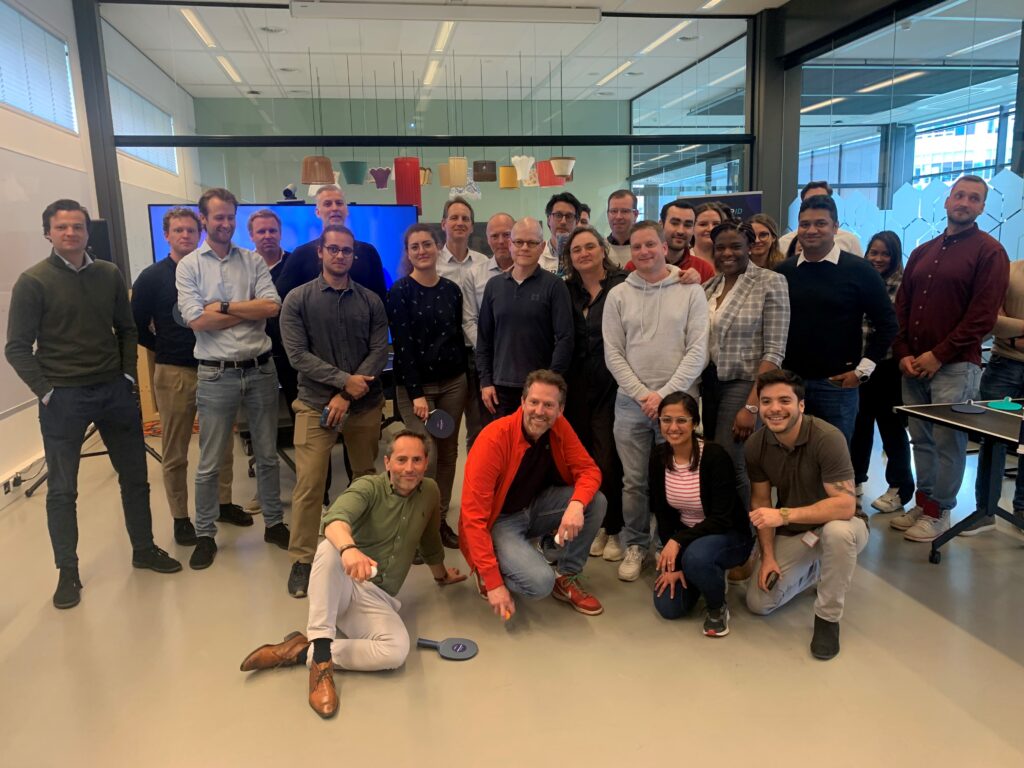CoorpID recently organised a Ping-Pong tournament for ING KYC analysts and corporate account managers. Why Ping-Pong? Well, to begin with Ping-Pong is a lot of fun and at CoorpID we believe that you can achieve better results when you combine work with fun. And, moreover, you can easily draw an analogy between Ping-Pong and the KYC client outreach process with numerous requests and documents going back and forth. In addition, it was an excellent opportunity to get to know our ING stakeholders, the ING KYC analysts and corporate account managers better.

During the tournament, ING Presenter and Host Rogier van der Zwaan interviewed three of our ING stakeholders to get their take on a number of the biggest KYC challenges that financial institutions (FIs) are facing today.
Challenge no. 1 Negative Customer Onboarding Experience
Due to KYC requirements and inefficient KYC processes, customer onboarding can take a lot longer than customers normally would expect – an average onboarding process for a new corporate customer can take up to 100 days – resulting in a negative customer experience and, in some cases, loss of business. The challenge that FIs are facing now is to transform customer onboarding from a paint point into a competitive differentiator and a revenue driver.
Anthony van Vliet, Global Head of KYC for Wholesale Banking at ING, on how to improve the Customer Onboarding Experience:
“We have to make the process more efficient. I think the first major step is to focus on customer groups instead of entities. We have around 60,000 entities but we actually have around 5000 customers or customer groups. So it starts by seeing a customer group not as 100 entities but as a single customer. I think we could really improve the customer experience and make the process a whole lot more efficient if we shift our focus from separate entities to customer groups. . CoorpID currently facilitates this group approach as a document can be uploaded once on to the CoorpID platform and it can then be applied to multiple entities in a group. This will help us to become more structured and coordinated in our outreach and that is obviously beneficial for our customers.”
Challenge no. 2 Customer Outreach Friction
When performing an initial CDD investigation for a prospective customer or carrying out a review of an existing customer, an FI has to gather information on the customer to fulfil its KYC obligations. A lot of this information can be obtained from third-party data sources. However, some information has to be provided by the customer and this ‘customer outreach’ process can be a source of frustration for both the customer and the financial institution if this process is not managed properly. Another pain point in the customer outreach is the way in which information is exchanged. Confidential and highly sensitive information is often still being requested and sent by email. Not only does this pose a security risk for both the FI and the customer, it is also a very inefficient and unstructured means of communication.
Marcel Peijs, Managing Director Business Development & Non-Financial Risk at ING, on Customer Outreach Friction:
“I am inspired by the quote: ‘life is like a game of ping-pong, the player who serves well, has already won the game’. If you enjoy serving customers, solving the KYC nightmare would certainly be really gratifying. I think it’s very important that customer-facing staff are involved in the KYC outreach. There is also a material advantage when the KYC research is done by the same person who does the outreach. So that there’s no handover between research and outreach. This would definitely reduce the friction and improve the communication with our customers. And, of course, exchanging KYC data efficiently and securely with a utility like CoorpID would also help reduce customer outreach friction.”
Challenge no. 3 Adopting a new approach to KYC: perpetual KYC
Perpetual Know Your Customer (P-KYC) is a risk-based approach, powered by technology, that enables automation across the end-to-end periodic KYC review process, leaving only a small subset of the more complex cases that require some degree of human intervention. P-KYC performs ongoing monitoring of a customer’s profile by validating previously collected information and continuously identifying and assessing changes. Therefore, by applying new and existing technologies to the KYC process, refreshes can be made more frequently with greater efficiency and lower costs.
Ivar Lammers, COO Daily Banking & Group Treasury at ING, on A new approach: Perpetual KYC
“Perpetual KYC means that we’re continuously monitoring the customer’s identity, ownership structure, risk profile, and associated parties as well as the customer’s behaviour. The idea is that we take a risk-based approach to KYC and use technology to constantly monitor customer data. We will then only bother the customer for additional information when there’s actually a reason to do so. And when we do engage with the customer, we want to do this in a very customer-centric way by using CoorpID for the customer outreach.”
The CoorpID KYC Ping-Pong tournament was such a great success that we will definitely will organize another round this year!
Team CoorpID



ps. curious about the after movie? Check it out!

